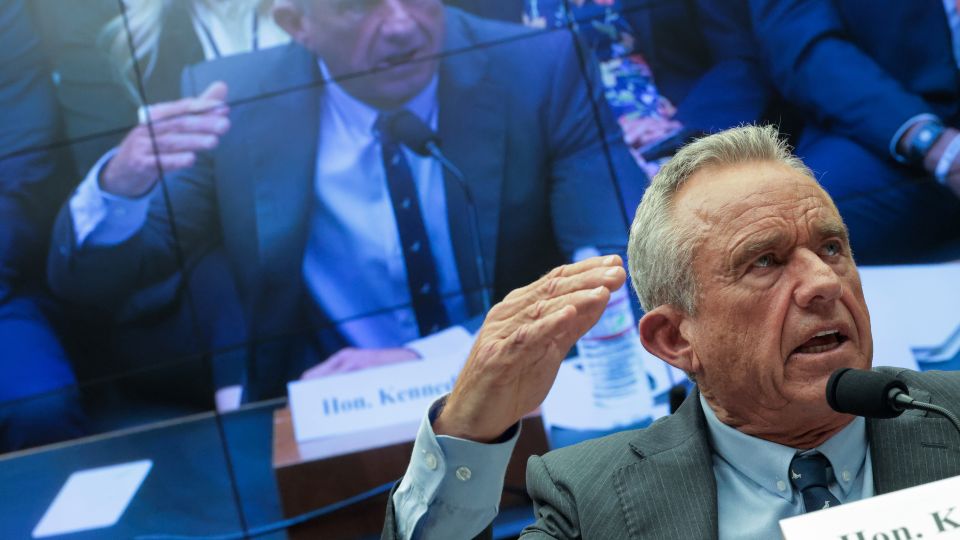Vested Interests. Influence Machine. At RFK Jr.'s HHS, It's Not Pharma—It's Wellness.

The Intersection of Wellness, Politics, and Public Health
Health and Human Services Secretary Robert F. Kennedy Jr. has become a central figure in the growing movement that promotes wellness as an alternative to traditional medicine. On his way to an Ultimate Fighting Championship event, he visited the home of podcaster Gary Brecka, where they spent time in a hyperbaric oxygen chamber and tried intravenous nutrition drips that Brecka sells on his show, “The Ultimate Human.” This encounter was followed by a podcast taping, during which Kennedy criticized the influence of Big Pharma on federal health policy.
Kennedy accused federal agencies of being captured by the industries they are supposed to regulate. “We have a sick-care system in our country, and the etiology ultimately of all that disease is corruption,” he said. While he speaks out against pharmaceutical companies, Kennedy and others associated with the “Make America Healthy Again” (MAHA) movement have their own financial ties to the $6.3 trillion global wellness industry.
According to a KFF Health News review of financial disclosures, Kennedy and four other MAHA figures earned at least $3.2 million from 2022 to 2023 through their work opposing Big Pharma and promoting wellness. This figure doesn’t include additional income sources such as speaking fees or product sales. The Means siblings, for example, have launched wellness companies that have raised over $99 million in funding.
Public health leaders and ethicists express concern about these financial ties, fearing that personal profits could influence decision-making at the highest levels of federal health agencies. Arthur Caplan, founding head of the medical ethics division at New York University’s Grossman School of Medicine, warns that the wellness industry is becoming as powerful as Big Pharma. “You shouldn’t have a vested interest in making recommendations on wellness or supplements or health. It opens the door to all kinds of shenanigans.”
Unlike previous administrations, the Trump administration has elevated anti-vaccine and wellness leaders to positions within HHS. Critics argue that this shift risks harming public health, citing examples like Kennedy’s removal of members from a vaccine advisory group. Two of the newly appointed panel members had previously worked as paid experts in vaccine lawsuits against Merck.
Calley Means, a special government employee and top adviser to Kennedy, co-founded Truemed, a company that allows people to use pretax dollars from flexible spending accounts to pay for wellness products, including SoulCycle classes. The IRS has warned consumers about companies misrepresenting wellness items as eligible for FSA payments.
Casey Means, Calley’s sister, is Trump’s pick for surgeon general and co-founded Levels, a glucose monitoring company valued at $300 million. She has used social media to advocate for public policy that encourages blood sugar monitoring for healthy individuals, despite research showing limited benefits for those without diabetes.
Outside advisers like Peter McCullough, a former cardiac doctor with financial ties to the wellness industry, have also gained influence. He has developed a protocol to detox from mRNA vaccines and sells related supplements. His company, The Wellness Co., has seen significant sales, raising concerns about potential conflicts of interest.
The wellness industry, while smaller in lobbying power than the pharmaceutical sector, is growing rapidly. Public interest in wellness has increased since the pandemic, with 84% of U.S. consumers considering it a top priority. However, the industry faces less regulation, allowing companies to sell supplements without notifying the FDA and making unverified claims.
Ethics and disclosure issues continue to surround Kennedy and his allies. He has profited from referring people to law firms that sue over alleged vaccine injuries, and his financial disclosures reveal ongoing ties to legal cases involving vaccines. While he plans to divest some interests, critics argue that loopholes still allow for potential conflicts of interest.
As the wellness movement gains traction, questions about its influence on public health policy remain. With figures like Kennedy holding high-ranking positions, the balance between personal profit and public good continues to be a topic of debate.
Post a Comment for "Vested Interests. Influence Machine. At RFK Jr.'s HHS, It's Not Pharma—It's Wellness."
Post a Comment